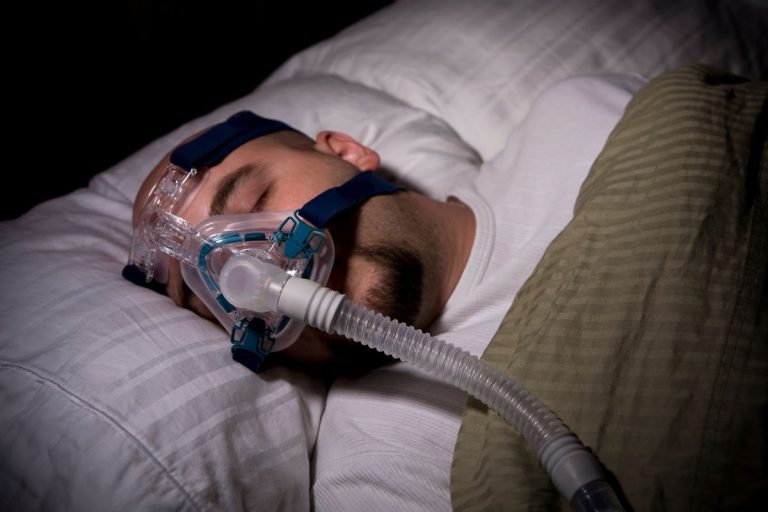Cymbalta is a commonly used medicine that can help treat anxiety, depression, body aches mostly related to chronic pain, and others. However, even though it’s quite popular and effective at treating the symptoms of the aforementioned conditions, it also comes with several side effects which may or may not be prominent but can affect your life in a great matter.
That’s why Cymbalta as medicine should always be used with caution. Moreover, it’s necessary to have your doctor prescribe it to you, as they best know whether it may be beneficial for your mental health or not.
A lot of people who take Cymbalta experience insomnia or some other form of sleep deprivation while taking it. It’s quite common and more likely to occur than other side effects associated with this medicine. It’s 10% more common compared to other side effects, according to a study.
That’s why it probably doesn’t surprise you that so many people report that the reason for their insomnia is exactly this medicine. But, how to overcome this side-effect without quitting the medication? Is there some alternative that is just as successful at managing your depression and anxiety symptoms without giving you insomnia in the process?
We wrote this article to discuss whether Cymbalta causes insomnia and how to manage to sleep without having to stop this medicine. Explore different ways to take this medicine and what lifestyle changes you could adapt for this side effect to subside and allow you to have peaceful sleep.
It’s no secret that insomnia can lead to many psychological disorders, or even amplify them as a result of sleep deprivation. Sleep deprivation causes us to be less alert and hinders our ability to focus and lead happy lives. That being said, the whole point of treating anxiety and depression with a medicine that will cause insomnia is not so effective, so you’ll have to find an alternative treatment method.
Can Cymbalta Cause Insomnia?
The short answer is yes, it can. As mentioned earlier, Cymbalta is a medicine that has a myriad of side effects, many of which people decide to quit taking the medicine and look for alternatives.
Cymbalta is known as duloxetine, which is one of the more popular options for treating the symptoms of depression, anxiety, diabetic neuropathy, major depressive disorder, generalized anxiety disorder, fibromyalgia, and many others. However, even though it has shown to be a very popular treatment option, it has some serious side effects. According to a research insomnia is one of them.
Only your doctor can prescribe the medicine as it is supposed to be used as a long-term treatment option, and is hence considered a prescription drug. Your doctor might prescribe different types or dosages of Cymbalta, but in those milder conditions, the 20mg option is the most common, followed by 30mg and 60mg.
It’s quite important to avoid taking higher doses than what was prescribed to you, as that might cause some more adverse side effects, which can also be long-lasting in the process. Overdosing could also have bad consequences for the health, so make sure to always follow the directions given by your doctor as well as the label from Cymbalta medicine.
Cymbalta can cause nausea, constipation, dizziness, lack of appetite, profuse sweating, and many other side effects. Interestingly, it can make you feel unmotivated and feel as if you’re lacking energy. It can make you feel extremely fatigued but more often than not, it can cause you to experience insomnia.
Insomnia can come as a result of taking Cymbalta but more often than not, it can appear at different times. At first, in some people, Cymbalta can cause insomnia as they’re still adjusting to the medicine and after they get used to taking it and it starts taking effect, the symptoms of insomnia will likely reduce, which is why patience is advised.
However, it can also happen to people who use this medicine for a long time. Those patients are taking this medicine for different chronic pain, such as musculoskeletal pain, and are taking the medicine for a very long time, studies show. Sometimes, this same thing can happen to children who are taking the medicine to treat insomnia or other forms of sleep deprivation.
Some people besides regular insomnia which manifests as the ability to fall asleep, staying asleep throughout the night, and having the least noises wake them up, also report waking up sooner than they’re supposed to, usually very early into the morning.
Cymbalta is a medicine that works as a serotonin reuptake inhibitor and it affects one of our brain’s most important neurotransmitters, serotonin, and norepinephrine, which are key chemicals responsible for our moods. The disbalance of these chemicals can make us feel anxious and depressed, but taking a medicine such as Cymbalta balances these neurotransmitters and regulates how we feel on daily basis.
Usually, Cymbalta can take a long time to work, anywhere from 2 to 8 weeks, while for some cases, it can take even longer to start working. However, the side effects of taking this medicine may manifest earlier. Usually, it’s milder causes such as dizziness, dry mouth, daytime drowsiness, fatigue, nausea, weight loss, and of course insomnia.
In most cases, using this medicine means that the side effects will resolve quite fast. Unfortunately, that’s not always the case and the effects will persist and maybe even increase with time. That’s why it’s important to consult your doctor and see whether there’s a dose change you can make, or whether there’s an alternative to this medicine.
Taking higher doses, or taking less than the doctor recommended to you, you can also end up suffering from insomnia. Remember that your doctor knows best what’s the right dose for you and that he or she recommended it for you exactly for the best effects. Don’t make any changes in dose on your own, always consult your doctor.
It’s also important that Cymbalta can cause withdrawal side effects, and one of them is also insomnia. However, it’s important to not stop taking the medication on your own but always consult with your doctor.
How to Sleep While Taking Cymbalta
If you can’t start taking some other medicine instead of Cymbalta, there are certain lifestyle changes that you can adopt in order to overcome the problem with insomnia and allow your body to rest properly and get the sleep you need, continue reading for more!
Limit Caffeine
Caffeine is considered the most popular legal drug so it doesn’t surprise us that so many people resort to it daily. Some people may drink as many as five cups of coffee, or even mugs if you’re an avid coffee lover.
What many people don’t know is that caffeine is a strong stimulus that can keep us alert and concentrated on certain tasks. If taken too late during the day, it can cause us to toss and turn and face various difficulties falling asleep.
What’s also important is that caffeine can affect the heart rate, cortisol levels, and blood pressure which are all contributors to you staying up the night and struggling to sleep. Coffee is best consumed during the morning hours when people need to be awake, alert, and aware of their surroundings.
In the evening, coffee is not a good idea, unless you work a night shift and you have to stay up and remain focused.
Editor’s notes: Regardless of whether Cymbalta is making you unable to sleep at night or not, you should skip coffee after lunch and not drink more than 2-3 cups of coffee a day.
Also Read: Caffeine and Sleep: How Does Caffeine Affect Sleep?
Don’t Exercise In The Evening
Exercising is always encouraged because in that way we’re able to get rid of excess energy and also promote good health and energy. Many people feel energized after exercising. Working out encourages our metabolism to start working and burn extra calories we’ve consumed lately.
What’s bad for our sleep is when we exercise just before bed. That can trigger the metabolic rate and cause you to have difficulties sleeping. Those difficulties often feel exhausting when you wake up the next morning.
If you’re taking Cymbalta, you should definitely avoid exercising in the evening or doing any strenuous activity before bed, as that will just worsen the side effects of insomnia.
Editor’s notes: We know that many people lead busy lifestyles and can’t manage to work out earlier in the day. In that case, don’t exercise at least 2 to 3 hours before bed, or resort to some other activities such as meditation or even Yoga to relax your body before bedtime.
Don’t Eat Late
Eating late, just before bed, is not only bad for people who are taking Cymbalta but anyone else. Eating food rich in carbs, sugars, fats, and protein can cause you to stay up late and struggle with falling asleep. Food will trigger your digestion system, as well as metabolism, just like in the case of exercising before bedtime.
That’s why it’s of utmost importance to plan your meals more carefully. Eating complex meals in the evening can cause you to get acid reflux and heartburn which are especially disruptive to your sleep routine.
Editor’s notes: Just like with the case of exercising, you should see to avoid eating 2 to 3 hours before bedtime. If you suffer from acid reflux and the GERD disease that time should be postponed even more, according to a study. Try to not eat after 6 pm if you have GERD so that your digestion system can go dormant when it’s time to sleep. Don’t skip meals, and practice good nutrition habits throughout the day as hunger can affect your food just the same as overeating.
Try Melatonin
Did you know that there are several over-the-counter medicines, minerals, or sleep aids that can help you fall asleep easier? The best part is that they won’t cause you any side effects in combination with Cymbalta.
One of such OTC sleep aids includes Melatonin, which is our naturally-occurring chemical that tells our brain when it’s time to sleep. It is usually triggered by a dark environment like the nighttime outside. It affects our circadian rhythm which is also known as our body clock.
Experts recommend 1 to 5mg per day which will be enough to signal your brain to fall asleep. It is a good supplement that can improve your total sleep time, which is especially helpful if Cymbalta causes you to wake up earlier than usual. It also affects sleep latency, meaning that it will help you fall asleep faster, according to a study.
Editor’s notes: If you are concerned about the side effects of Melatonin, you can always consult with your doctor to see whether changing your therapy will help you. Alternatively, you can try taking a Magnesium supplement, which can help relax your muscles and nervous system, promoting good sleep quality.
Change Dosage
As mentioned before, there are different variations of Cymbalta. Your doctor may want to start with a certain dose and then change with the results they get about your condition. If you are taking Cymbalta to deal with chronic pain, they’ll likely recommend a medium dose of it.
However, as the time passes, they may change the dose they give you and are likely to do the same if they see that Cymbalta gives you certain side effects and affects your sleep.
Editor’s notes: Remember, never increase or lower the dose of Cymbalta to your knowledge. Even if you know your body the best, your doctor knows what adverse effects Cymbalta can have on you. Make sure to consult with your doctor about different doses and alternatives and don’t change them on your own.
Establish a Routine
Everyone might be telling you to establish a routine and change your sleeping habits altogether. However, no one knows what that means, especially because everyone’s sleep routine is different.
However, a few rules remain the same, you have to create a perfect sleep environment which means no TV or other electronics such as laptops, tablets, or phones, creating a silent environment too by not playing loud music, closing the windows if you live in a busy street and even using earplugs.
Finally, you should try to sleep at the same time every night so that you wouldn’t disrupt your biological clock. If you didn’t complete some daily obligations, put them away for tomorrow and try to maintain the routine. Remember, you should also keep your environment cool, and dark, which means turning off the lights, and putting dark curtains over the windows.
Try a Bath
A warm and cozy bath should be an important part of your evening routine. Warm water and bubbles will relax your muscles and allow you to prepare for your bedtime routine. Avoid cold water or water that’s too hot as that may wake you up even more.
Even showers can help, but baths feel more like an entire ritual for people who just want to unwind and put away all the negative thoughts and daily hustle that the work or education involves. Studies show that warm baths can help you cool down in bed and sleep better.
Editor’s notes: Try using salts for sleep in your bath. The best salts for sleep are usually those made with Magnesium.
Also Read: Can You Take NyQuil as a Sleep Aid?





